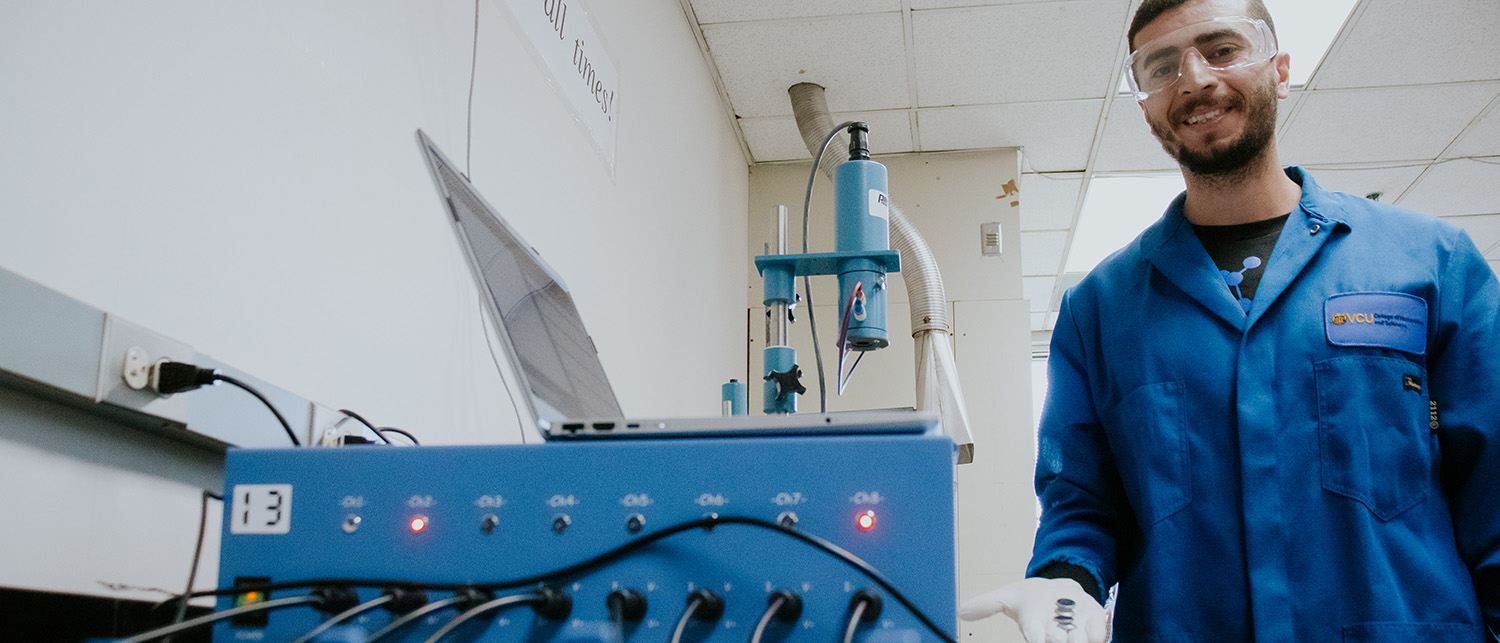M.S. in Chemistry
The department offers a master's degree with both the thesis and non-thesis options.
Areas of study include analytical, organic, inorganic and physical chemistry, as well as interdisciplinary research projects in chemical biology and nanoscience.
- The thesis M.S. in chemistry prepares students for basic or applied research through a combination of coursework and research, and culminates in a published thesis. The advanced knowledge and skills gained through this program can enhance career prospects, open doors to new opportunities, and provide a competitive edge in the job market.
- The non-thesis M.S. in chemistry is a course-intensive degree and a fantastic opportunity for professional advancement, particularly for individuals already established in their careers in industry, education, government or the military.
For a full overview, admission requirements and degree requirements, please visit the VCU Graduate Bulletin.
Application Overview
Applicants must meet all requirements listed by the School of Graduate Studies and College of Humanities and Sciences, in addition to those from the Department of Chemistry listed on the Admissions page.
Students need to apply by March 15 to be considered for the fall semester and October 15 to be considered for the spring semester. Applicants are considered until all positions are filled.
We do not provide GTA support for students enrolled in the MS program. However, they can be employed as lab teaching assistants (LTAs) depending on the teaching demand and student enrollment in chemistry courses. LTA positions provide a stipend based on the number of credits you teach each semester. However, it doesn't offer tuition support. Tuition and university fees are the responsibility of master's students. For more information regarding LTA positions, please contact the Associate Chair Dr. Suzanne Ruder at sruder@vcu.edu
.

Research Opportunities
We provide unique opportunities for advanced study in the traditional areas of chemistry (analytical, organic, inorganic and physical) as well as in interdisciplinary topics such as sustainability and energy, chemical biology and biochemistry, nanoscience and nanomaterials, and computational and machine learning.